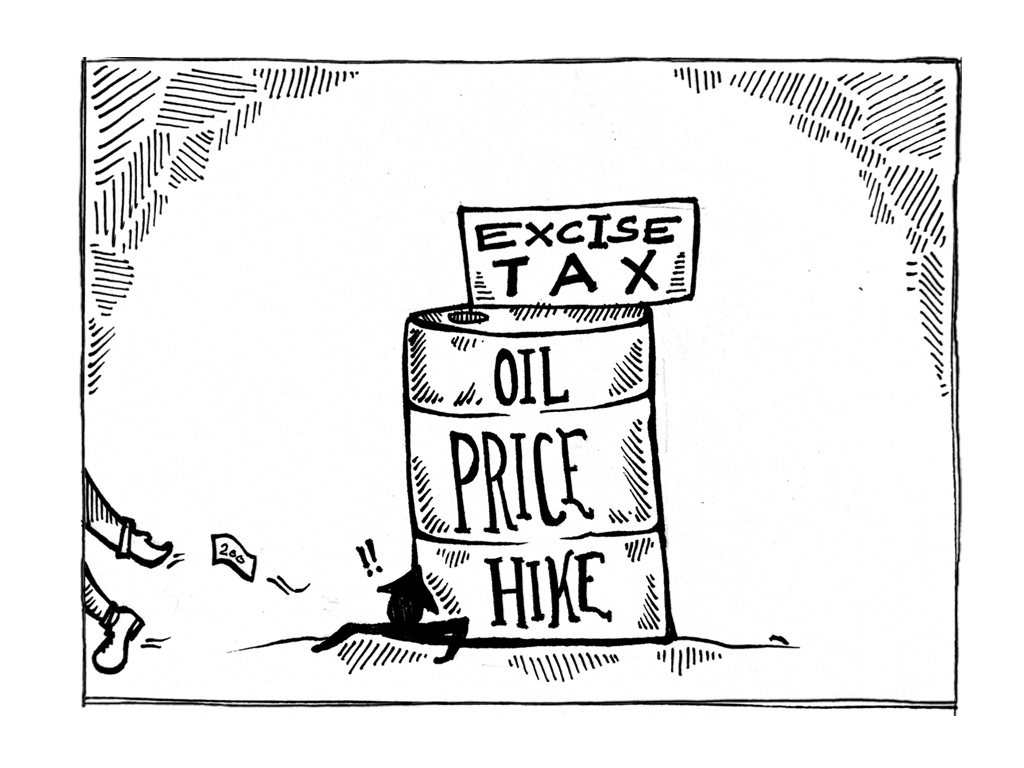This Week in Media (March 14 to 18, 2022)
SOME NEWS organizations called on Filipinos to come forward as sources by speaking out on the burden of rising oil prices. The collective strain has compelled workers and consumers to go public, pleading for assistance. Journalists talked to farmers, fisherfolk and public utility drivers who told them about planning to halt or actually halting operations, since fuel costs take much of what they earn.
Media have been following responses from government which concerned sectors have found insufficient. Not all targeted beneficiaries in the transport sector have received fuel subsidies; some are still waiting to receive their fuel cards. The initial tranche has been given to jeepney and bus drivers. Drivers of taxi, tricycle and delivery riders are lower in the priority for subsidy distribution and have yet to receive information about their subsidies.
To reduce fuel expenses, the National Economic and Development Authority (NEDA) raised as an option a four-day work week. So far, only Iloilo City and Iloilo province have announced the adoption of this suggestion. NEDA Secretary Karl Kendrick Chua also disagreed with calls by trade unions and labor groups for minimum wage hikes, saying it would lead to a higher inflation rate.
President Duterte approved the recommendation of economic managers not to suspend the excise tax on petroleum products but to instead distribute a PHP 200 monthly financial aid each for 12 million indigent families until the end of the year. In the Cabinet meeting, Finance Secretary Carlos Dominguez III acknowledged this was not enough, but it was all the government can afford at this time. He added that excise taxes cannot be suspended, since the target revenues have already been allocated for expenditures for the Build, Build, Build program and for the salaries of government employees including soldiers, policemen, and teachers.
Media reported reactions from lawmakers in both Houses, activist groups and economic groups that criticized the measly amount intended as “ayuda.” Marikina Rep. Stella Quimbo, an economist, told ANC that suspending the excise tax provides faster relief across the board compared to distributing dole-outs, a strategy that she criticized as inefficient based on past experience.
Journalists need to keep up with the economic and financial fallout from the Russia-Ukraine conflict. Newsrooms must integrate resources, conduct team reporting so that business reporters can contribute to the general news about the effect of policies on people’s lives. The impact is visible; the issues that contribute to it or the solutions that could address these need to be accessible to the general public.
More than ever, there must be close scrutiny of available funds, especially with the approach of elections.
Elections
Candidates are still occupied with their campaign activities, which the media continue to track, including controversial claims about crowd estimates. CMFR jeered some online media for not verifying independently the estimated participants in the Marcos-Duterte rally in Las Pinas City, which carried claims issued by the campaign team.
Flagging an irregularity, Rappler and 24 Oras reported the distribution of envelopes with cash in the Nueva Ecija sortie of the Marcos-Duterte team. Campaign manager Benhur Abalos denied knowledge of it, while Aurelio Umali, Nueva Ecija governor, said the provincial government handed out the envelopes as financial aid. Umali claimed he could not cancel the distribution that had been scheduled on the same day as the national candidates’ visit.
Because local campaigns are yet to start, candidates may pass off vote-buying as a form of aid distribution, whether in cash or in kind. Media must insist on proper documentations and accounting. Journalists in the community press should be alert to similar incidents and work with national media to publicize more widely election-related anomalies in the provinces.
Meanwhile, issues involving equipment, paraphernalia and computer systems for the automated elections had been revealed in a March 9 Senate hearing, with little pick-up from the media. Expanding discussion on the alleged Comelec data breach that was reported by the Manila Bulletin in January, the Senate Committee on Electoral Reforms and People’s Participation held an executive session. On March 17, Sen. Imee Marcos, chair of the committee, and Sen. Vicente Sotto III announced to the media that Comelec’s system indeed suffered a security breach. They claimed a Smartmatic contractual employee took out a laptop used for work and leaked its contents.
Both the Comelec and Smartmatic, the provider of elections software, denied the senators’ claims. Commissioner George Garcia said the Comelec would wait for the full report of the National Bureau of Investigation that would ascertain the breach. Smartmatic spokesperson Christopher Louie Ocampo told the media that his company’s contract does not involve the storage and processing of sensitive voter data.
Unfortunately, the he-said, she-said approach limits public appreciation of the questions raised by automation. Media should know better than to leave reporting at this level, especially when the integrity of the elections is at stake.

Leave a Reply